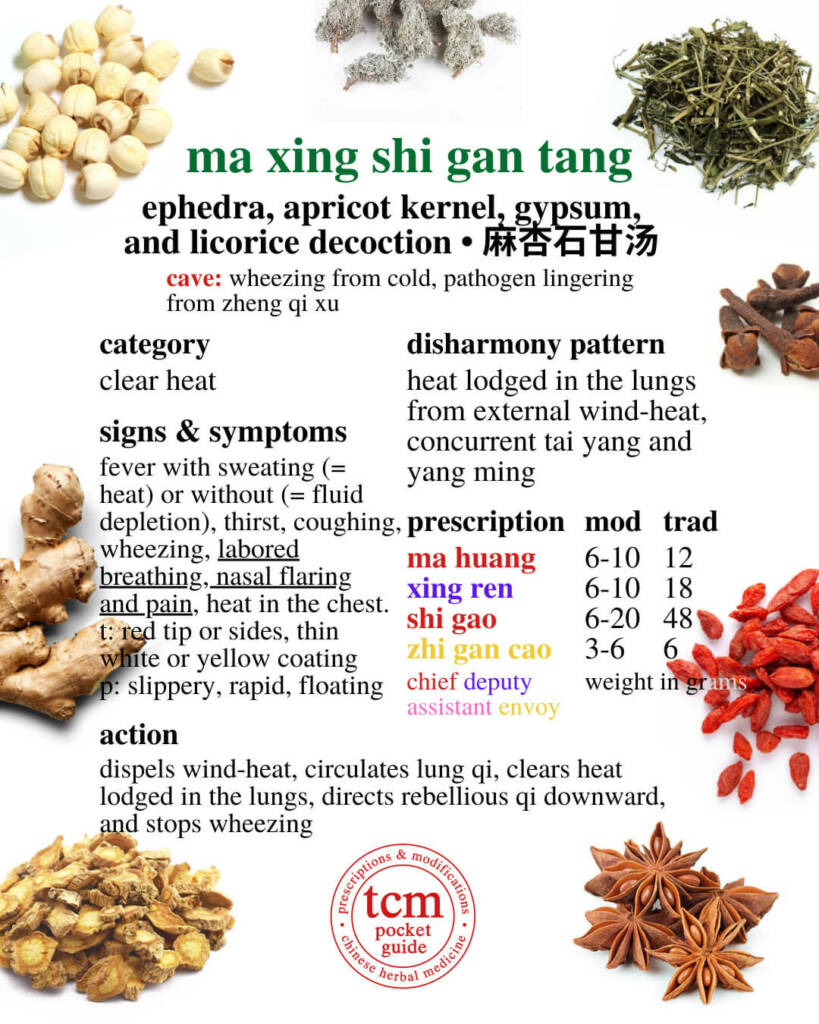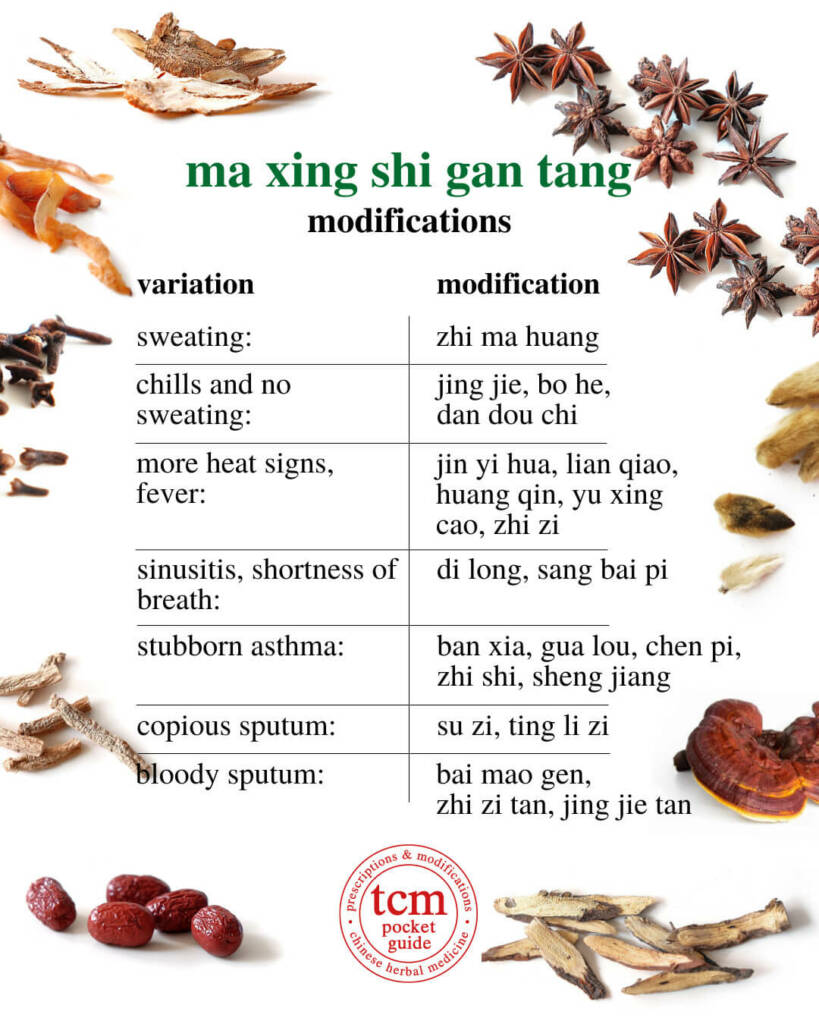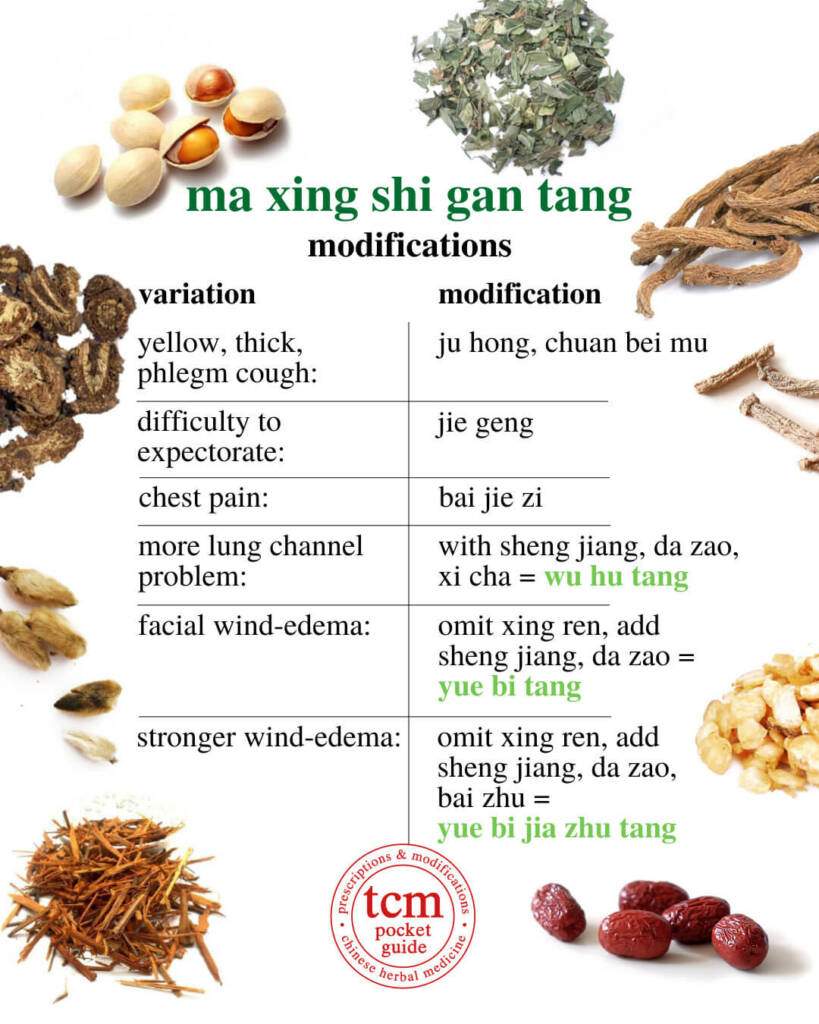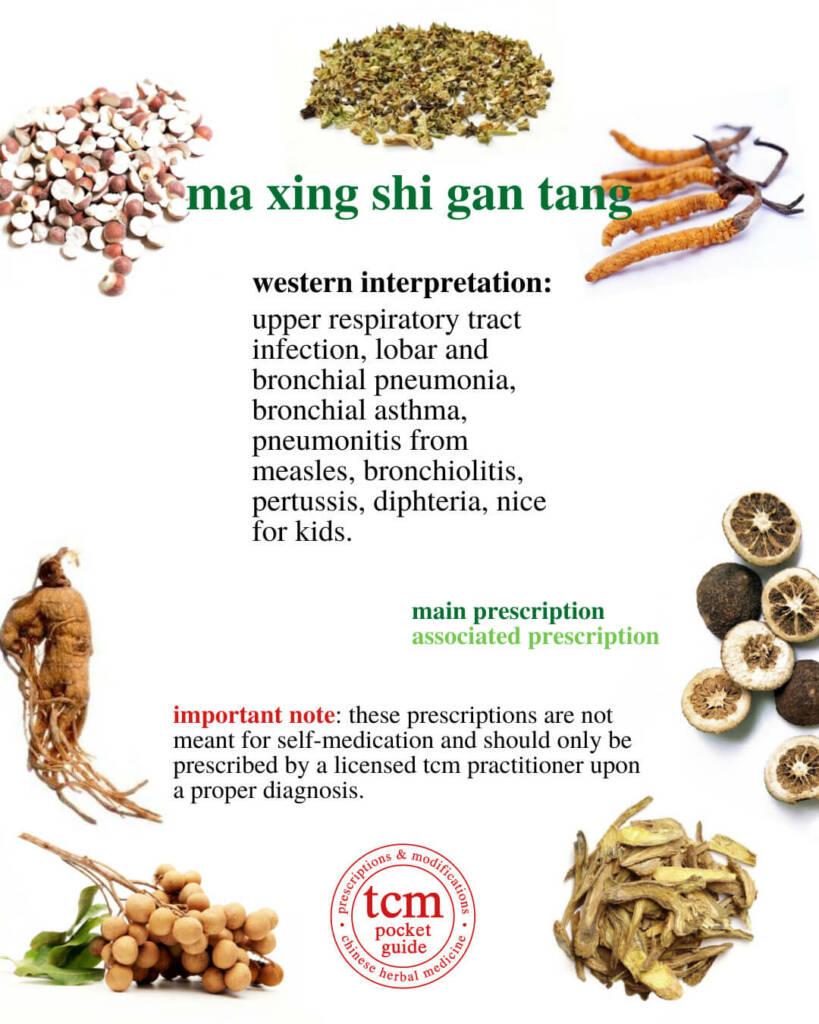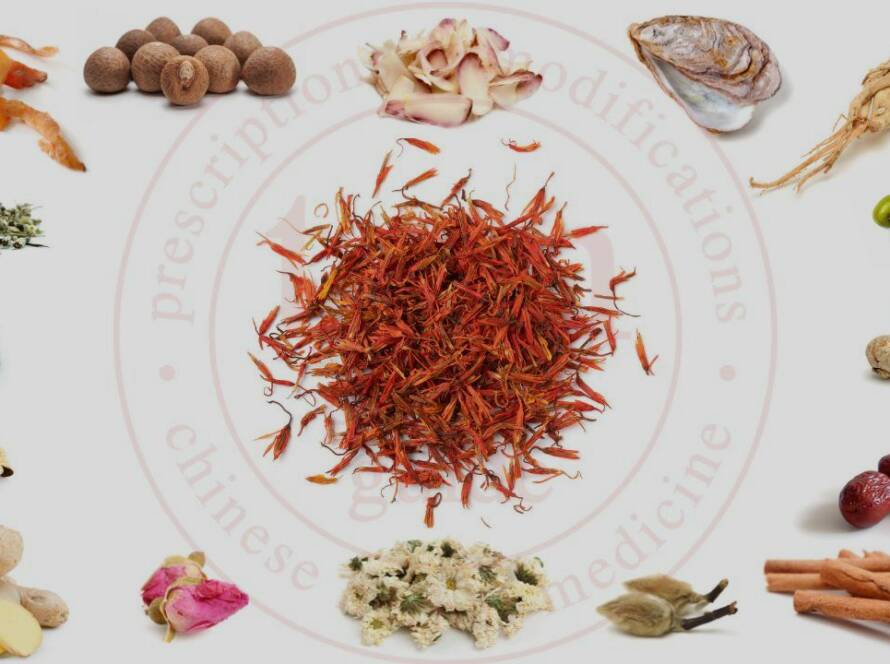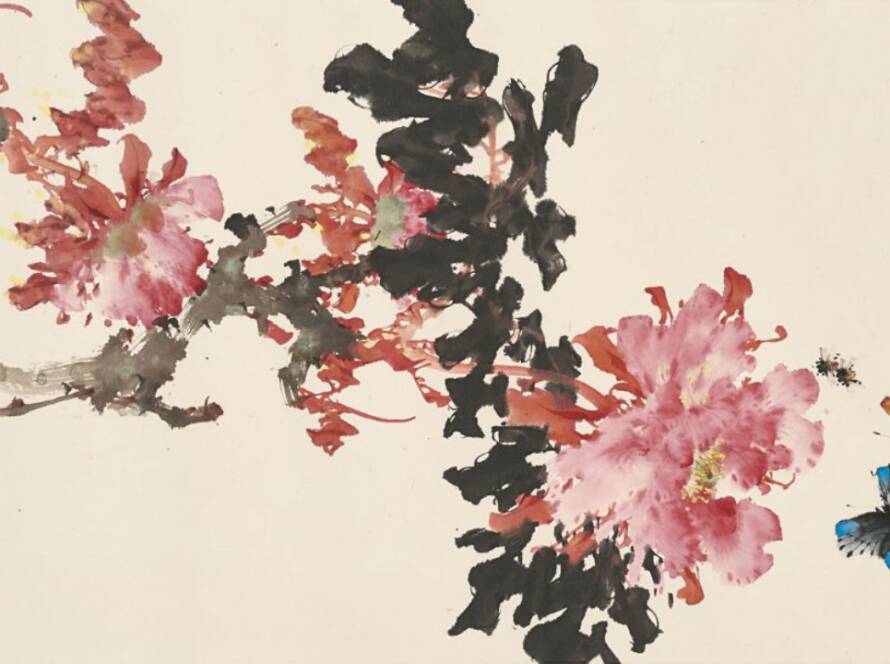má xìng shí gān tāng is used for patterns with
wind-heat attacking the lungs, wind-cold transforming into heat, wen bing qi stage lung heat, concurrent tai yang and yang ming pathology.
symptoms indicating the use of má xìng shí gān tāng
fever with sweating or without sweating, thirst with desire for cold water, dry nose, coughing with thick sticky yellow sputum, wheezing, labored breathing, shortness of breath, asthma, chest pain, runny or blocked nose with thick yellow discharge, nasal flaring and pain, red face, headache, dizziness, restlessness, fidgeting.
western interpretation of má xìng shí gān tāng
upper respiratory tract infection, lobar pneumona, bronchial pneumonia, bronchial asthma, pneumonitis from measles, bronchiolitis, pertussis, and diphtheria.
explanation of the mechanism
this is heat lodged in the lungs where it obstructs the flow of qi. it may be caused either by externally-contracted wind-heat, or wind-cold that transforms into heat.
the fever, thirst, yellow tongue coating, and rapid pulse are all indicative of heat. wheezing, coughing, and labored breathing reflect the obstruction of the lung qi. the presence or absence of sweating indicates the extent to which the lungs have been affected. heat in the lungs causes fluids to ‘steam’, which is manifested in sweating. however, in more severe cases the heat will deplete the fluids and there will be little or no sweating.
(bensky & barolet)

created with love in switzerland 🇨🇭
feel free to share this content:


